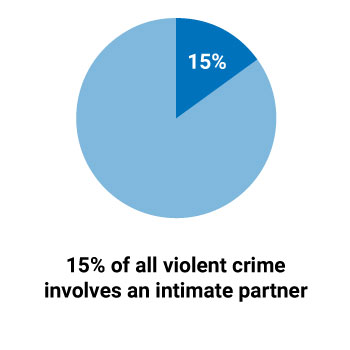2025 Prevention Unit Impact Report
July 2024–June 2025
Our work for children, youth and families, focuses on programs and activities that promote well-being, reduce harm and improve health and education outcomes. The Prevention Unit is part of Children, Family & Community Connections (CFCC) Division of Clackamas County Health, Housing and Human Services Department.
Prevention Unit
8,182 Residents Served Across All Prevention Programs
Funding
Over 60% of our budget directly supports non-profit organizations and community partners.
Revenue
- State funds (34%)
- County funds (29%)
- Federal funds (18%)
- Other funds (19%)
Our work includes
- Domestic Violence Response
- Early Learning
- Parenting Education
- Substance Use Prevention
- Youth Engagement
Specialized Services
Through agreements with community partners, we supported:
- Child abuse medical assessments
- Services for children of incarcerated parents
- Therapeutic classroom and home-based services for children and families at risk of abuse or neglect
Community Responsive Work
- Empoderando Familias
- Youth Action Board
- Services in Different Languages
- Parent Advisory Council
- Culturally Specific Initiative for
- Domestic Violence Response
For more info
Jessica Duke
Prevention Unit Manager
jduke@clackamas.us
Domestic Violence Response
Our Domestic Violence (DV) Systems Coordinator provides support, coordination and consultation to the countywide community response to domestic violence.
95 Collaborative Meetings led towards system response improvement in both local and statewide DV efforts.
Through a federal grant, staff assisted with 621 Restraining Orders
Domestic violence is a primary reason why survivors find themselves homeless.
At A Safe Place Family Justice Center, Grant-supported staff assisted with 716 Follow up contacts with participants
13 Trainings
Covering the following topics
- Strangulation Response
- Strangulation Forensic Evidence Kits
- Sexual Violence Response
- Statewide Prosecutors
- Family Justice Center Services
- Law enforcement Response
- Emergency Medical Response
1 in 3 women and 1 in 7 men experience domestic violence in their lifetime
71 Strangulation Forensic Evidence Kits (SKITs) completed in Clackamas County. Strangulation has been identified as one of the most lethal forms of domestic violence. Use of SKITs improves medical assessment of strangulation survivors.
Created the first statewide Strangulation Forensic Evidence Kit (SKIT) Website offering information for law enforcement and medical personnel.
For more info
Sarah Van Dyke
Domestic Violence Systems Coordinator
svandyke@clackamas.us
Early Learning
The Early Learning Hub of Clackamas County (ELHCC) is funded by The Oregon Department of Early Learning and Care with state and federal funds. Our Early Learning Hub connects and coordinates early learning and family support services throughout the county.
50 families received scholarships for their early learning/childcare needs. 21 Local programs received a total of $105,000 to support families.
202 Children Enrolled in Preschool Promise
Preschool Promise (PSP) is a publicly funded program for free preschool to families with income at or below 200% of the Federal Poverty Level. Families enrolling in Preschool Promise are referred to other resources needed to improve early learning success for their children.
9 Public Health Outreach Videos
Produced videos on 9 public health topics for community education, home visits and school parent nights. Topics included positive childhood experiences, well child checks, immunizations, screen time, nutrition, literacy, firearm safety, and tobacco and marijuana prevention. Each video is available in English, Spanish, Russian, and Ukrainian. Local families participated in making each video. All videos are available online.
Community Events
- 38 car seats installed for families at no cost at a community car seat clinic
- 240 children participated in KidoKinetics large motor playgroups
- 40 Professionals participated in the Playful Inquiry Conference
- 37 families visited the regional Early Childhood Fair at Gladstone Center for Children and Families
30 Little Free Libraries
Little Free Libraries offer opportunities for families to take home free books or trade in books their family has outgrown. You will find these libraries all around the county at DHS offices, school districts, Head Start and Preschool Promise sites. Over 2,000 books have been distributed to free libraries to support the love of reading and promote literacy in our community.
Professional Development
- 105 providers trained at Early Literacy Conference
- 115 providers trained at Cards for Connection Kindergarten Readiness Summit
For more info
Dani Stamm Thomas
Early Learning Hub Director
dstammthomas@clackamas.us
Parenting Education
Clackamas Parenting Together (CPT) is our parenting education hub. CPT is funded through the Oregon Parent Education Collaborative with state, federal and private funds. CPT offers parenting education classes for all ages of childhood.
390 parents across Clackamas County participated in parenting classes which are free, evidence-based, and culturally responsive.
97% of parents participating in our programming said they would recommend our services to others.
Parenting from the Inside Out
62 parents, many of whom are incarcerated or on probation, participated in classes proven to reduce recidivism and improve family relationships and parenting skills.
Parent cafe training
20 participants were trained to host parent cafes: a low-barrier, community-building family support model
Increased Confidence
Families participating in parenting classes reported significant growth in understanding their goals and values as parents, as well as how to protect children from unsafe situations.
While classes are open to anyone regardless of income, 75% of participants identified as low income and used at least one public resource such as WIC, OHP, SNAP/TANF.
Class Topics Included:
- Mindful Parenting
- Positive Discipline
- Changing Generational Cycles
- Dynamics of Temperament
- Substance Use
- Safe Sleep
- Potty Training
- Emotional Regulation
- Self-Care
Our motto: “Because every family needs strong roots”
For more info
Sophia Butler
Parenting Education Hub Director
sbutler@clackamas.us
Youth Engagement/Substance Use Prevention
We support substance use prevention programs and coalitions that focus on positive approaches, highlighting the natural strengths and abilities that young people have to help them grow and develop in the best way possible.
893 Youth participated in Positive Community Norms classroom presentations, resulting in a measurable increase in understanding that most peers do not use drugs or alcohol.
Reaching Community
- 581 people participated in forums to learn about and share their experiences in substance use prevention
- 439 people shared perspectives through surveys
12 Coalitions & Workgroups
Working to prevent substance use
- Clackamas Community Alliance (CCA)
- Clackamas County Prevention Coalition (CCPC)
- Local Public Safety Coordinating Council (LPSCC)
- Vibrant Futures Coalition - North Clackamas
- Empoderando Familias
- Estacada Prevention Alliance
- Oregon City Together (OCT)
- Community Living Above (CLA) - West Linn/Wilsonville
- Canby Prevention Coalition (CPC)
- Statewide Marijuana Prevention Affinity Group
- Tri-county Prevention Collaborative
- Youth Action Board (YAB)
PreventNet Community Schools
93% of youth participating in PreventNet programming reported feeling more connected to their school and community.
Youth Action Board
Provides consultation to Clackamas County and partner organizations to assure programs are accessible, relevant and impactful for youth. Members completed 15 projects related to:
- Housing
- Parks and Recreation
- Substance use prevention & services
- Statewide alcohol and drug policies
Positive Youth Development
- 304 youth received individual health and academic support
- 901 youth participated in peer discussion circles
- 1,884 youth engaged in activities fostering growth and resilience
- 453 youth and parents connected with prevention staff at outreach events
5,581 People strengthened Capacity, Connections & Awareness
Participating in activities that:
- Built youth skills, resilience and connection
- Increased awareness of substance misuse
- and its effects on the developing brain
- Reinforced community prevention efforts
- Provided prevention tools and skills
8 Trainings - 119 Participants
Topics included:
- Strategic Prevention Framework (SPF)
- Active Parenting
- Substance Abuse Prevention Skills Training (SAPST)
- Naloxone for Overdose Prevention
- Recovery-Oriented Systems of Care
- Treating Co-occurring Opioid Use & Mental
- Health Needs
For more info
Brian McCrady
Prevention Specialist
bmccrady@clackamas.us
 Translate
Translate








